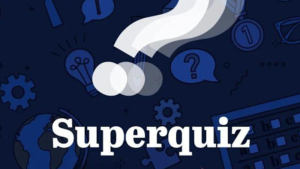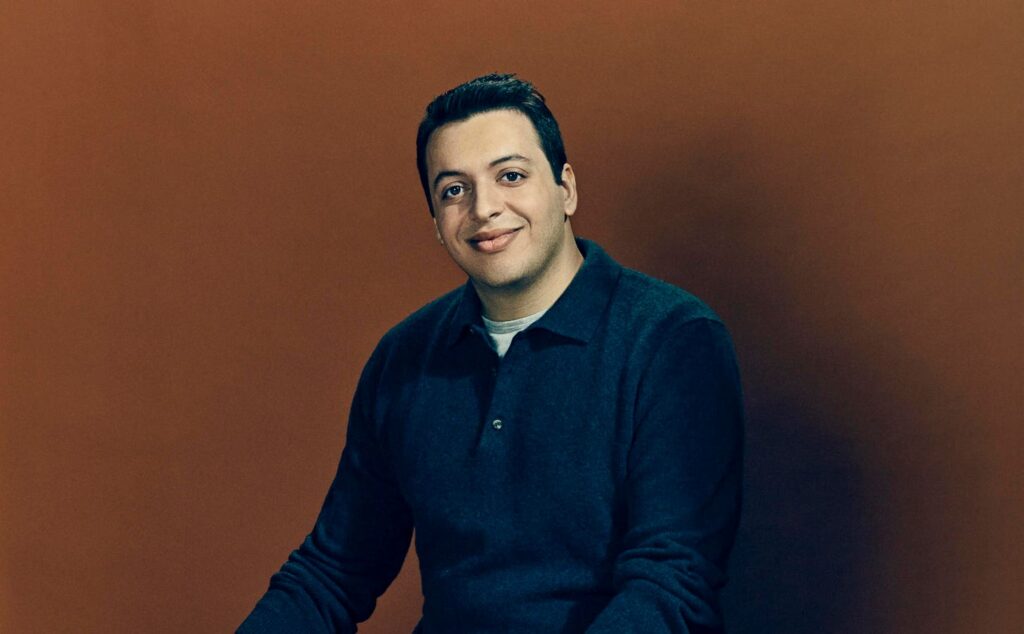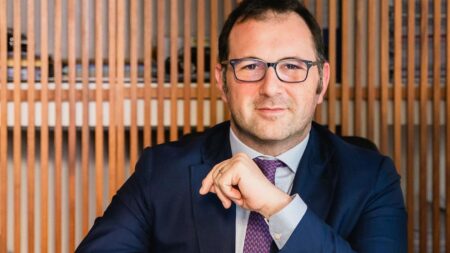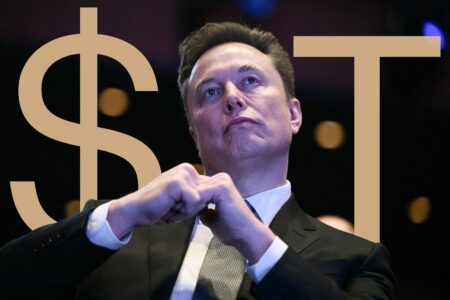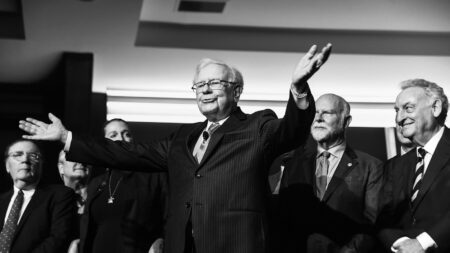T The heated rivalry between HR software startups Rippling and Deel, which accused each other of corporate espionage in lawsuits filed earlier this year, continues to play out in the private market as well. On Thursday, Deel announced a $300 million fundraise from Ribbit Capital, Coatue and Andreessen Horowitz. That was enough to boost the company’s valuation to $17.3 billion and make it more valuable than Rippling for the first time since 2022. The transaction also boosted the fortunes of Deel cofounders Alex Bouaziz and Shuo Wang by an estimated $500 million apiece. But bragging rights for who’s richest go to Rippling cofounder Parker Conrad, who owns a bigger chunk of his company and whose fortune is still larger by more than $1 billion, Forbes estimates.
According to Deel CEO Bouaziz, the deal has nothing to do with the rivalry or legal costs. “ We don’t think about [Rippling] at all,” he says, despite being actively engaged in litigation with Deel’s rival. Ribbit and Coatue (which is also a Rippling investor) approached Deel a couple weeks ago about doing a funding round, says Bouaziz, and then closed it quickly. He says Deel is projecting a $170 million to $200 million profit for 2025 and plans to use the new funds to make more acquisitions, expand its internal payroll and banking software, and invest in AI. A source close to the company told Forbes that Deel now has around $800 million of cash in the bank.
Got a tip? Contact Matt Durot at mdurot@forbes.com and Phoebe Liu at pliu@forbes.com or phoebe.789 on Signal.
“We could have even potentially raised at a higher valuation,” says Bouaziz. “Three very strong [investors], a good price for the company … and [our] profitability profile enables us to do a lot more from an acquisition perspective. Plus, fresh capital is never a bad idea, right?”
Bouaziz and Deel’s chief revenue officer Wang are now worth an estimated $2 billion apiece, thanks to their estimated 12% stakes in the company they cofounded in 2019 after meeting as students at MIT. That’s up from $1.5 billion each based on a secondary share sale in March that valued Deel at $12.6 billion.
Rippling’s CEO Conrad, meanwhile, is worth an estimated $3.4 billion, thanks to his estimated 20% stake in the company he cofounded in 2016, after resigning under pressure from another HR software startup he cofounded called Zenefits amid investigations into unlicensed insurance policy sales. Rippling raised $450 million in its most recent funding round in May, which valued the company at $16.8 billion, up from $13.5 billion a year earlier. That transaction boosted Conrad’s fortune by an estimated $600 million.
It also bumped up the net worth of Rippling’s cofounder and former chief technology officer Prasanna Sankar, by $200 million to an estimated $1.5 billion. Forbes estimates that Sankar, who previously worked for Conrad as Zenefits’ director of engineering, still owns a 9% stake in Rippling, after leaving the company in 2020 and launching what he describes as a decentralized social network for crypto natives called 0xPPL in 2023. Sankar, who has more recently been engaged in an ongoing divorce with his wife, told Forbes that he no longer has a stake in Rippling after divesting his shares over the years. But another source close to the company says the shares were just moved into trusts affiliated with Sankar.
The last time Deel’s valuation exceeded Rippling’s was in May 2022, when the company more than doubled its valuation to $12 billion from $5.5 billion in October 2021. Rippling, which was worth $11.3 billion in May 2022, boosted its valuation to $13.5 billion in April 2024.
Deel seems to boast better financials though its valuation doesn’t totally reflect that. It has higher revenue (more than $1 billion vs. Rippling’s estimated $570 million) and is profitable while Forbes estimates that Rippling is still losing money. In May, Rippling’s Conrad told CNBC that his company isn’t fixated on becoming profitable or going public in the near future because it’s still focused on growth.
Bouaziz, meanwhile, says an IPO is still the plan but won’t rule out the possibility of another private funding round before then. In fact, there may still be more to come from Deel’s most recent fundraise, with the company having authorized the issuance of $650 million of shares and Bouaziz describing the $300 million raised so far as just the first close.
The companies’ recent fundraises may have enriched their cofounders, but a significant portion of their cash could end up going to pay legal fees if their dueling lawsuits—involving some of the country’s highest-powered and most expensive law firms—go on for long enough. Deel and Rippling have been feuding publicly for years: denouncing each other on website blog posts and fighting for customers by insulting each other in Reddit forums. The bad blood boiled over when Rippling sued Deel in March and Deel countersued Rippling a month later.
Rippling has alleged that “Deel cultivated a spy to systematically steal [Rippling’s] most sensitive business information and trade secrets” and violated the Racketeer Influenced And Corrupt Organizations Act (RICO) in the process. Rippling representative Bobby Whithorne wrote to Forbes that “Alex personally directed and received, multiple times a day, stolen downloads of our customer lists, our product roadmap, and other trade secrets. When the spy he was paying didn’t respond for a day, Alex would ping him on WhatsApp to keep the flow of information coming. This is a borderline obsession, which led to criminal theft.”
Deel wrote in its complaint that it “will no longer tolerate Rippling’s unlawful, anticompetitive, and defamatory conduct” and alleged that Rippling violated the Deceptive Trade Practices Act, along with claims of defamation and trade libel—in part by using an impostor “to gain unauthorized access to Deel’s systems and steal Deel’s data to create copycat competing products.” Both are civil cases and mostly involve potential damages: Deel claims “hundreds of millions of dollars” in lost business opportunities, for example. There have been no criminal charges brought against either company to date, though it’s possible the DOJ could get involved. Rippling’s Whithorne says Deel’s complaint contains “bogus claims,” while Bouaziz has called the case against Deel “frivolous.”
The legal battles are ongoing, and both companies have been chronicling updates on their websites. In Deel v. Rippling, Deel most recently argued that law firm Quinn Emanuel and its celebrity lawyer Alex Spiro shouldn’t be allowed to represent Rippling because Deel had consulted with the firm in 2023 and shared proprietary information when considering a separate lawsuit against Rippling then. In Rippling v. Deel, a hearing scheduled for December is set to include arguments about early challenges to Rippling’s initial complaint.
“I’m not too concerned about it,” says an early Deel investor who interprets its latest fundraise as a way to send the “right signals” before going public. “[Deel and Rippling] are fierce competitors. It’s hard to tell what truly is going on behind the scenes.”
Bouaziz claims he isn’t worried, either, but says he can’t comment on litigation specifics. “We win in the marketplace and also win in court.”
No matter the victor, in an era when venture capitalist attention is being lavished mainly on AI startups, both Rippling’s and Deel’s latest fundraises show that there is plenty of appetite for HR software—even if the lawyers end up sharing some of the returns.
Read the full article here



